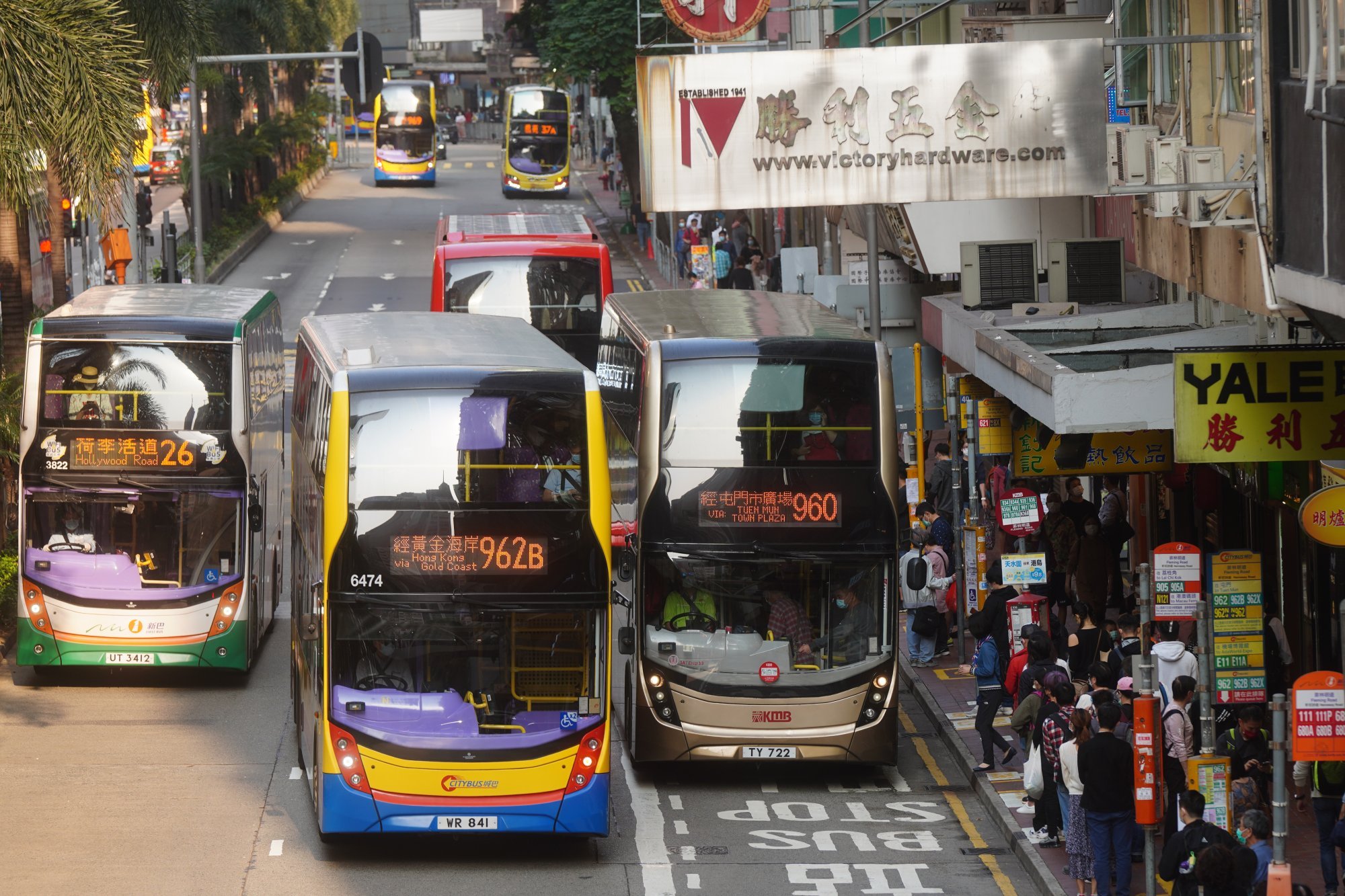
Explainer | HK$5,000 vouchers: who qualifies, who doesn’t, and where can you spend them in Hong Kong?
- Adult permanent residents, and migrants from mainland China can soon register for the digital vouchers designed to boost city’s economy
- The vouchers will be available on a variety of e-payment platforms, but not if you are a work-permit holder or domestic helper
Hong Kong’s long-awaited HK$5,000 consumption voucher scheme will open for registration from July 4, and is expected to give a strong boost to many businesses amid the coronavirus pandemic.
Residents will receive the digital vouchers in two or three instalments depending on which electronic payment operator they choose, but those who prefer to have the money on stored-valued Octopus cards will enjoy a greater flexibility in spending.
Those registering between July 4 and July 17 can get the money as early as August 1, and residents can have at least five months to spend the sum. The deadline to apply for the vouchers is August 14.
Here is what you need to know about the scheme.

1. Why is the government giving out these vouchers?
Announcing the details on Friday, Financial Secretary Paul Chan Mo-po said he hoped the vouchers would help stimulate consumer sentiment in the city.
“It allows the cash value of the vouchers to circulate in our local economy, and that helps us drive Hong Kong’s economic recovery,” he said, adding another aim of the scheme was to boost the adoption of electronic payment systems.
In 2020, Hong Kong’s economy suffered a 6.1 per cent slump, its largest annual contraction on record, as the pandemic hammered consumption and tourism spending.
But the city’s gross domestic product showed a significant improvement with a surge of 7.9 per cent year on year in the first quarter of 2021. Earlier, Chan estimated the HK$36 billion scheme would help boost the economy by 0.7 per cent.
Hong Kong’s first HK$5,000 vouchers to be delivered from August 1
2. Who is eligible and what can the vouchers be used for?
Any adults who are Hong Kong permanent residents and recent migrants from mainland China will be eligible as long as “they are not out of Hong Kong for the whole of the past two years”, Chan said. Dependents sponsored by a permanent resident of Hong Kong will also benefit.
But exemptions are granted to those studying and having medical treatment outside the city and residents employed by local companies to work overseas, along with their families. Elderly residents living in Guangdong and Fujian under designated welfare schemes are also eligible.
Those in custody are also covered under the policy and they can transfer their benefits to their families. However, expats holding working visas and domestic workers are excluded.
The Immigration Department will help verify whether residents have been in the city in the past two years and a contractor will help conduct random checks.

The vouchers can be used for public transport, at restaurants, in retail stores, consumption service outlets, and locally registered online stores.
But the scheme excludes payments to the government such as tax and tunnel fees, utility bills, financial products and services, tuition fees and expenses at schools and universities, donations and online purchases from non-local businesses.
Jessie Wong Hok-ling, head of the government’s tax policy unit, said the scheme’s e-payment operators would monitor the transactions. If merchants were found to have flouted regulations, officials would not rule out kicking them out of the scheme, while any illegality would be followed up by authorities, she added.
Hong Kong unemployment falls to 6 per cent as coronavirus pandemic’s grip on economy eases
3. How can I register for the voucher?
Online applicants can visit www.consumptionvoucher.gov.hk but will need to prove their identities with HKID cards or the government’s iAM Smart app.
For those who previously received HK$10,000 in a cash payout scheme last year, they can simply respond to some security questions when verifying their identities. Applicants can also submit a form to post offices and designated bank branches.
Octopus card users can redeem the vouchers via the Octopus app or at designated collection points, such as MTR stations and convenience stores, while AlipayHK, Tap & Go or WeChat Pay HK users will receive direct payments into their accounts.
The payout redeemed on Octopus cards can be stretched over eight months across three instalments. The first two vouchers will be worth HK$2,000 each.

For example, for an application submitted between July 18 and August 14 deadline, as long as the HK$4,000 in digital vouchers under the scheme are spent by March 31, 2022, the third coupon worth HK$1,000 will be received on April 16, 2022 with no expiry date.
Those opting to receive the money using other digital wallets would receive the vouchers in two disbursements – the first batch worth HK$2,000 and the following HK$3,000 two months later. But the total amount must be spent by December 31 or January 31, 2022 depending on when the application was submitted.
Venetia Lee, general manager of Alipay in Hong Kong, Macau and Taiwan markets said the payment platform was set to put up HK$1 billion worth of shopping discounts for users to enjoy using the digital vouchers.
WeChat Pay HK said users would be able to separate the voucher amount from their account balance on the platform, making it easier to track their spending.
Octopus has committed HK$100 million worth of spending rewards, while early registrants can also receive HK$118 on the cards as a bonus.
4. Do small businesses really benefit from the scheme?
Economist Andy Kwan Cheuk-chiu, director of the ACE Centre for Business and Economic Research, said he believed bigger chains, such as those selling electrical appliances and supermarkets, would benefit more.
“Not all small businesses have electronic payment systems. Also, they tend to have lower footfall,” Kwan said.
But retail sector lawmaker Peter Shiu Ka-fai said he expected different industries would benefit, except those selling expensive luxury items.
Hong Kong Small and Medium Enterprises Association president Pam Mak said some beauty parlours which used to sell HK$10,000 packages were planning to roll out ones priced at HK$2,000 to attract customers.
Octopus to spend HK$1 million helping city’s small businesses capitalise on e-vouchers plan
Simon Wong Ka-wo, president of the Hong Kong Federation of Restaurants, said he thought consumers would spend about a third of the digital coupons on eating out.
“There’s more people dining out again, so we hope that customers will also spend the vouchers at restaurants,” he said.
5. Are there similar schemes in other economies?
In Macau, an 8,000-pataca (US$1,000) sweetener opened for registration for permanent and non-permanent residents of all ages on May 12. Each person gets 5,000 patacas through digital wallets and the rest through discounts using a Macau Pass, a stored-value card operated by Octopus.
In South Korea’s Gyeonggi province, all residents were provided with a basic income of 100,000 won (US$88) in April 2020, as part of the government’s Covid-19 relief measures.
The money was limited to be spent at local businesses with less than 1 billion won in annual sales, which excluded major department stores, large markets, supermarkets chains, entertainment businesses, gambling operations and franchised outlets.
In the United States, stimulus cheques of US$1,200 were issued in April 2020 to eligible taxpayers who gave direct deposit information on their 2019 or 2020 tax returns.
More rounds were rolled out in December 2020 and March 2021 at US$600 and US$1,400 respectively.




